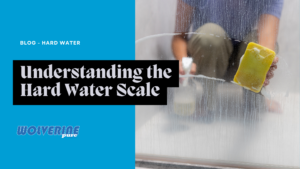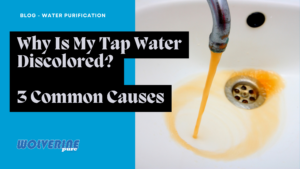We might not always know when a water system is necessary for our home. But here are seven key indicators that will help you decide when to start looking for home water system options.
Whether you have a private well or are part of the municipal water system, common tap water contaminants can make your water taste metallic, earthy, like rotten eggs or like chlorine (just to name a few). These unsavory contaminants can make you question the integrity of your water supply and can discourage you from drinking the recommended eight glasses of water per day. If you have to choke down a glass of your own tap water, it’s a huge sign that it’s time to consider a drinking water system or a whole-home water system.
You can’t quite put your finger on it, but there’s something about your tap water that just turns you off. If your water smells like anything other than clean and neutral, it’s time for your home’s water supply to be evaluated. A common water issue is a sulfury, rotten egg smell. The smell can be subtle or overwhelming. There can be many causes for stinky water, so it’s best to have a professional run a water test to determine the root cause of the issue.
It’s simple-when you pour a glass of pure water, it should be completely clear. If your water contains visible floating sediments, is cloudy or is tinted a different color (like yellow, orange or red), it’s time to get those sediments removed.
If you’re finding that your relatively new appliances are starting to lose some efficiency, it could be a sign that the water running through them is hard. Hard water (water containing high mineral content) can cause mineral buildup on water pipes and the internal components of your appliances. Over time, this can lead to lower water pressure from clogged pipes (meaning your washing machine and dishwasher don’t seem to get things really clean anymore), which can result in higher soap usage and general appliance wear-down.
It’s simple-when you pour a glass of pure water, it should be completely clear. If your water contains visible floating sediments, is cloudy or is tinted a different color (like yellow, orange or red), it’s time to get those sediments removed.
When you fold and put away your clothes after finishing the laundry, do you ever feel frustrated that they don’t really seem clean? Washing clothes in hard or contaminated water can leave clothes feeling rough and scratchy, and can even be the cause of unexplained stains. The additional sediments that get stuck to your clothes can even cause your favorite pieces to dull and lose their vibrancy over time. You can try fabric softeners and special laundry additives, but to solve the root problem, you’ll need to make sure the water running through your machine is pure and free of extra minerals.
When it comes to maintaining a clean home, limescale and mineral buildup is Public Enemy No. 1. As soon as you’ve finished scraping mineral buildup off of your sinks, tubs, shower heads, faucets and toilets, it seems to creep back up again. And scrub as you might to get those little white spots off your glassware or coffee pot, they always come back. The only way to get these surfaces truly sparkling to make sure that the water you use in them is clean and pure.
Remember all of those bad things that hard water can do to your home and appliances? (See ⬆️) Hard water can have similar effects on your skin and hair. The minerals from hard water can trap soap residue and make it hard to fully wash away. This soap residue remains on your skin and hair even after you dry off from your shower. This can cause your hair to be flat, dry, frizzy and coarse. Your skin can be left feeling dry and itchy.
Schedule your FREE in-home water test today. Our Wolverine Water specialists can help you determine EXACTLY what’s in your water and recommend a solution customized to your home. And we’ve got our process down pat. Schedule an appointment today and your water test will take just a few minutes. Schedule Free Water Test




